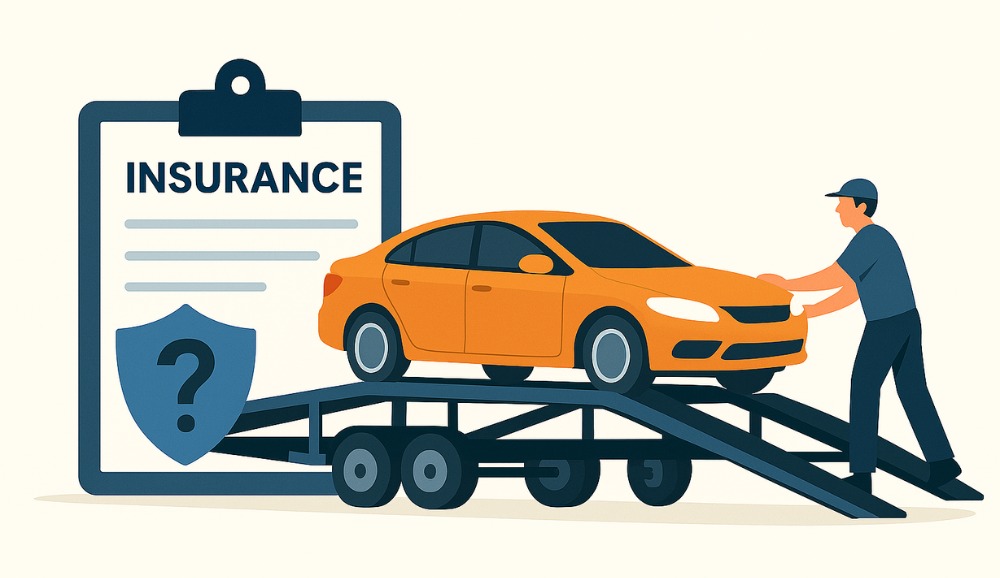Maybe you’re moving across the country, sending your kid off to college with a lucky car, or relocating for a job that promises a new life and absolutely no time to drive 2,500 miles. Whatever the reason, your long loved Prius is going on a truck, and suddenly you’re wondering: Wait… what happens if something goes wrong? Should I have insurance? Does the shipping company have it?
Take a deep breath. We’re going to break it down so you understand car shipping insurance better than you understand your own job.


